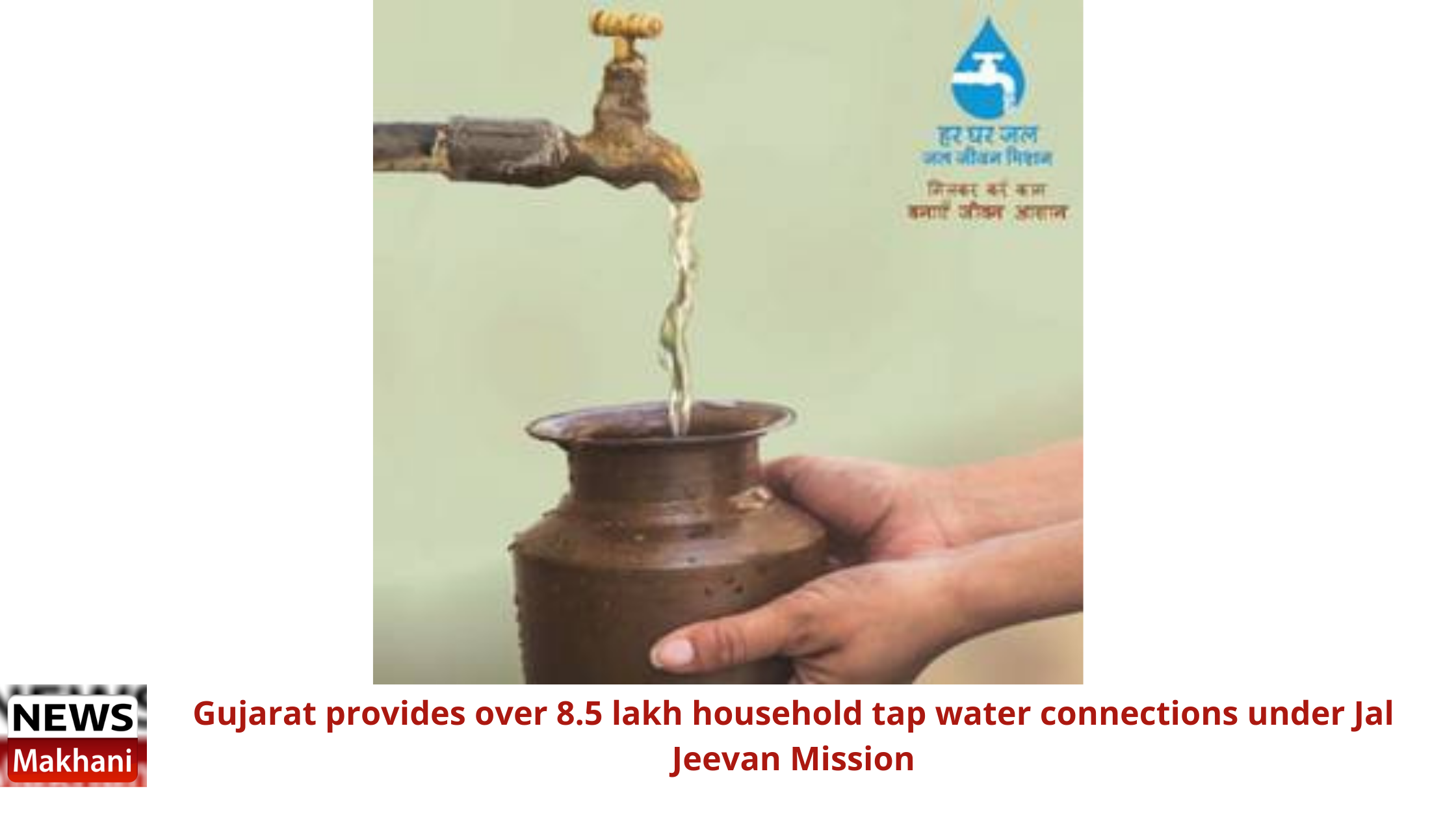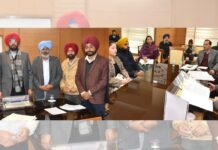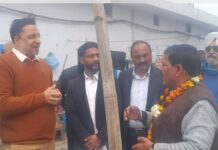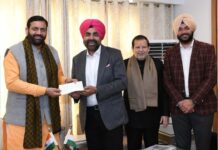Gujarat provides over 8.5 lakh household tap water connections under Jal Jeevan Mission
Gujarat, October 29
The Ministry of Jal Shakti has been continuously working with all the States and UTs to assist them with implementation of the Jal Jeevan Mission which was announced by Prime Minister Narendra Modi last year with the ambitious and crucial objective of providing 55 litres of potable water per person per day through tap water connection to 180 million rural households by 2024. This scheme is highly beneficial for all states/UTs especially the numerous advantages reaped by women and children from households having a potable tap water connection. The Mission has also been crucially benefiting those states in particular, who’ve been dealing with water issue owing to their geographical conditions.
The State of Gujarat is one such State that has been dealing with water issues due to its geographically arid conditions and the Jal Jeevan Mission is a potential boon for the masses in the region. Gujarat today presented its mid-term review to the National Jal Jeevan Mission officials who are in the process of reviewing the progress of the mission across the nation. Gujarat has plans to provide 100% tap connections by the year 2022-23. The total number of households in Gujarat are 93,02,583 with 35,996 habitations, 18,191 villages, 13,931 Gram Panchayats, 247 blocks and 33 districts. In the progress reported till date, the State has succeeded in giving 8,50,871 Functional Households Tap Connections (FHTC), which is 76.29 % of the given target.
The mid-term review largely reflected the good progress by the State which needs to continue and the corresponding financial expenditure to be expedited. Gujarat may be a role model for utility-based approach for VWSC. The State may also expedite IoT/Sensor-based pilots in the Jal Jeevan Mission program. The Ministry also requested State Government officials to ensure that all the anganwadi centres and schools are provided piped water supply as part of the special 100-day campaign- launched on 2nd October, 2020 to facilitate potable water in these institutions and securing a better future for our children as envisioned by Prime Minister Narendra Modi.
The State review highlighted the optimum utilisation of ‘low-hanging fruits’ to yield the desired results. There are 7,843 villages falling under the Q&Q blocks (blocks which are safe and no water quality issue exists), out of which 5,328 villages can be immediately considered for providing water supply schemes in above categories as the water is available in adequate quantity. The schemes of retrofitting of 5,328 villages must be sanctioned and completed in this year. Gujarat has 2 aspirational districts- Dahod & Narmada. Out of total 722 villages of Dahod district, 703 villages have PWS. However, only 107 villages are having 100% FHTCs.In Narmada district, all the 541 villages have PWS but only 122 villages are having 100% FHTCs. Out of 4,71,629 households, 4,68,424 households have access to PWS, however only 2,31,920 (49.17 %) households have tap connections. The State plans to saturate one aspirational district by 2022.
Majority of the Gujarat terrain is arid; hence, desert and drought prone areas are the main focus of State government. Similarly, aspirational districts, SAGY, SC/ST areas are to be given special importance in the plan. To achieve all of it and more, Centre has allocated 883.07 crores to the State; 15th Finance Commission has also allocated 3,195 Crore to State. Further, State has to efficiently exhaust other available resources like MNREGA fund, Swaccha Bharat Mission (Gramin) Fund for 2020-21 under convergence and dovetailing of funds at village level to be ensured.
State has informed number of initiatives to enhance drinking water security. Gujarat has passed Water Supply (Protection) Act, 2019 to deter the wastage of water. State has taken pilot for the Solar thermal distillation plant for coastal villages with capacity of 50 KLD to 200 KLD in partnership with BARC. The steps have been taken for improvements of O&M of the water supply schemes by Biometric attendance, reporting of Quality and Quantity on daily basis, curative and preventive maintenance and dynamic contractors ranking tied with eligibility of future funds.
The Ministry recommended for testing of drinking water to assess quality and enable the access of the water quality testing labs easier for general public. Focus should continue on source sustainability and grey water management. In was observed in the review meeting that the chemical testing of source is 12.36 % and bacteriological testing is only 13.89 % of the planned tests. The State was advised on training of at least 5 persons, preferably women, in every village for surveillance of water quality through field test kits (FTKs). State was advised to organize training for capacity building of Gram Panchayat functionaries as well as other stakeholders and also to focus on skill development training in villages to create a pool of trained human resources at village level, which will be very helpful in implementation as well O&M of water supply systems.

 हिंदी
हिंदी






